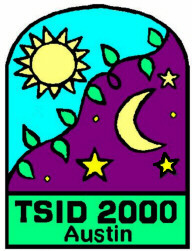Community Interpreting Track
First Things First
TSID 2000

Community Interpreting TrackFirst Things FirstTSID 2000 |
 |
To be an effective team member we need to be aware of how we process information, what our working style is, and what our strengths and weaknesses are. After becoming aware of those issues, we need to be able to communicate those things to our partner and accommodate their working style. We will work from the philosophy that the message is a team effort and not a personal part of either member of the team. Participants will explore ways to communicate with one another on assignments requiring a team of interpreters. We will examine our own styles, strengths and areas for improvement. We will discuss and practice ways to plan for, give and receive feedback from your partner.
This seminar is designed for certified interpreters interested in working in the legal system. Non-certified Deaf interpreters are also welcome. This fast-paced seminar will define the various roles that interpreters take in court and the ethical guidelines that prescribe their conduct. Participants will be presented with legal theory and practical applications of the various roles taken, the law of privileged communications and the court interpreter’s code of conduct. Participants will work in large and small groups to discuss role and ethical conflicts and guidelines.
Currently there is no description available for this workshop.
In this presentation, we will lay out the qualifications and knowledge required to interpret in a corporate/telecommunications setting. The need for interpreters qualified to work in corporate America as a fast paced and challenging dimension is changing. As the number of deaf and hard of hearing entering the corporate arena grows, so too, does the number of interpreters needed to facilitate communication for those employees. This workshop will address the many dynamics and differences between "traditional interpreting" and "corporate interpreting". Cultural, both deaf and hearing, as well as corporate cultural issues will be discussed with an opportunity for audience participation and interactive activities.
This session seeks to provide interpreters with the background knowledge necessary to successfully handle various medical interpreting assignments. Participants will learn pathophysiology, diagnostics, Greek and Latin roots for medical vocabulary, and courses of treatment through both didactic and ‘hands-on’ activities. There will be an opportunity to practice skills learned during the workshop.